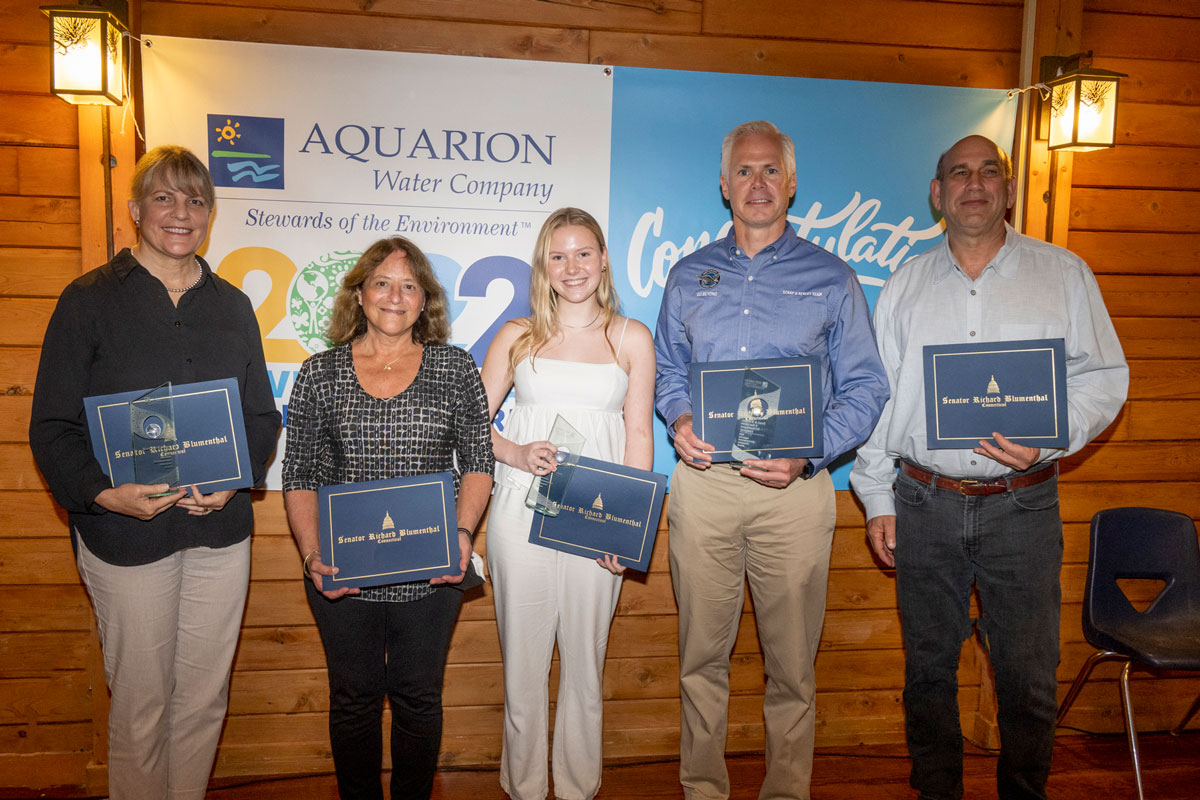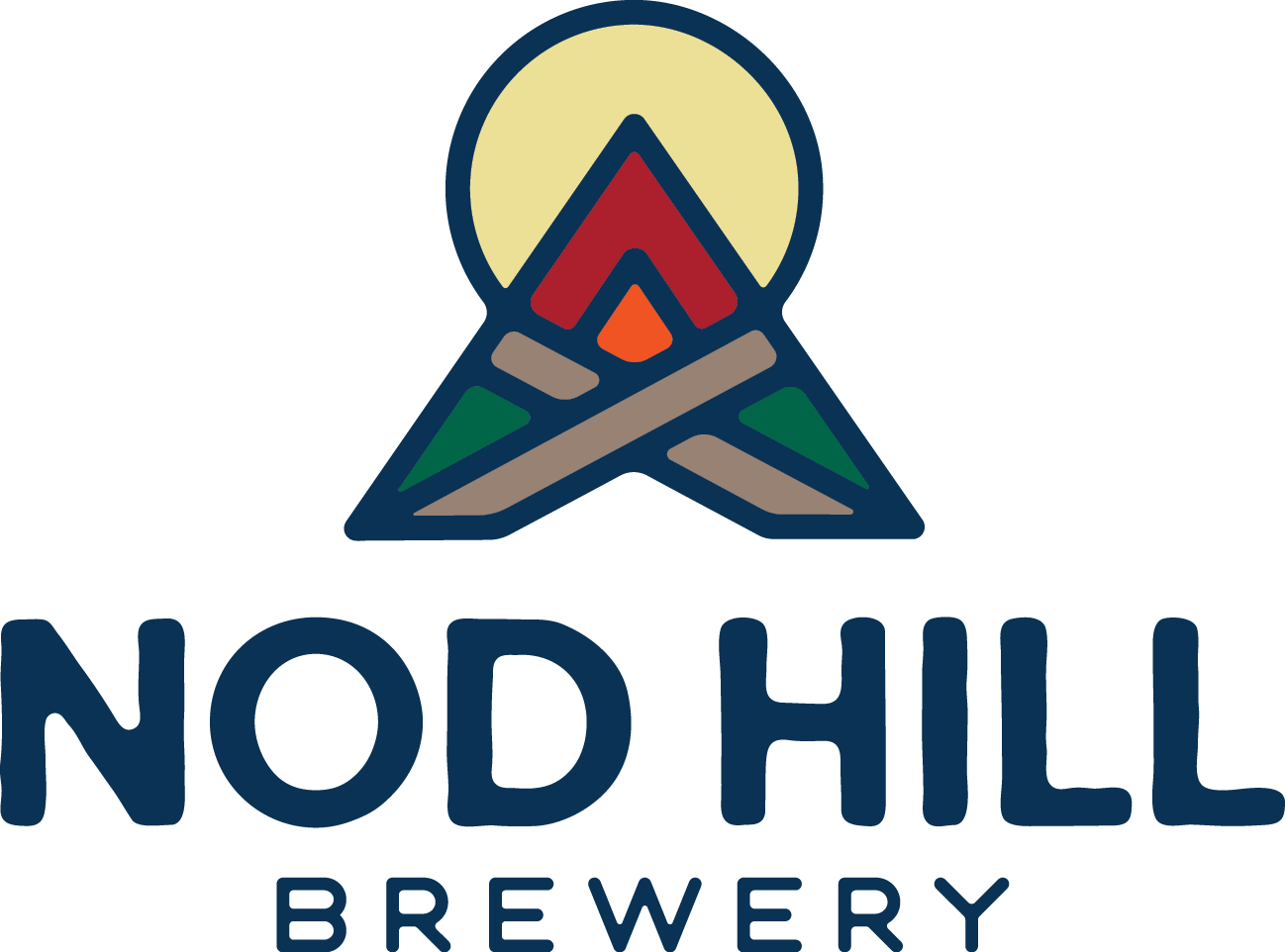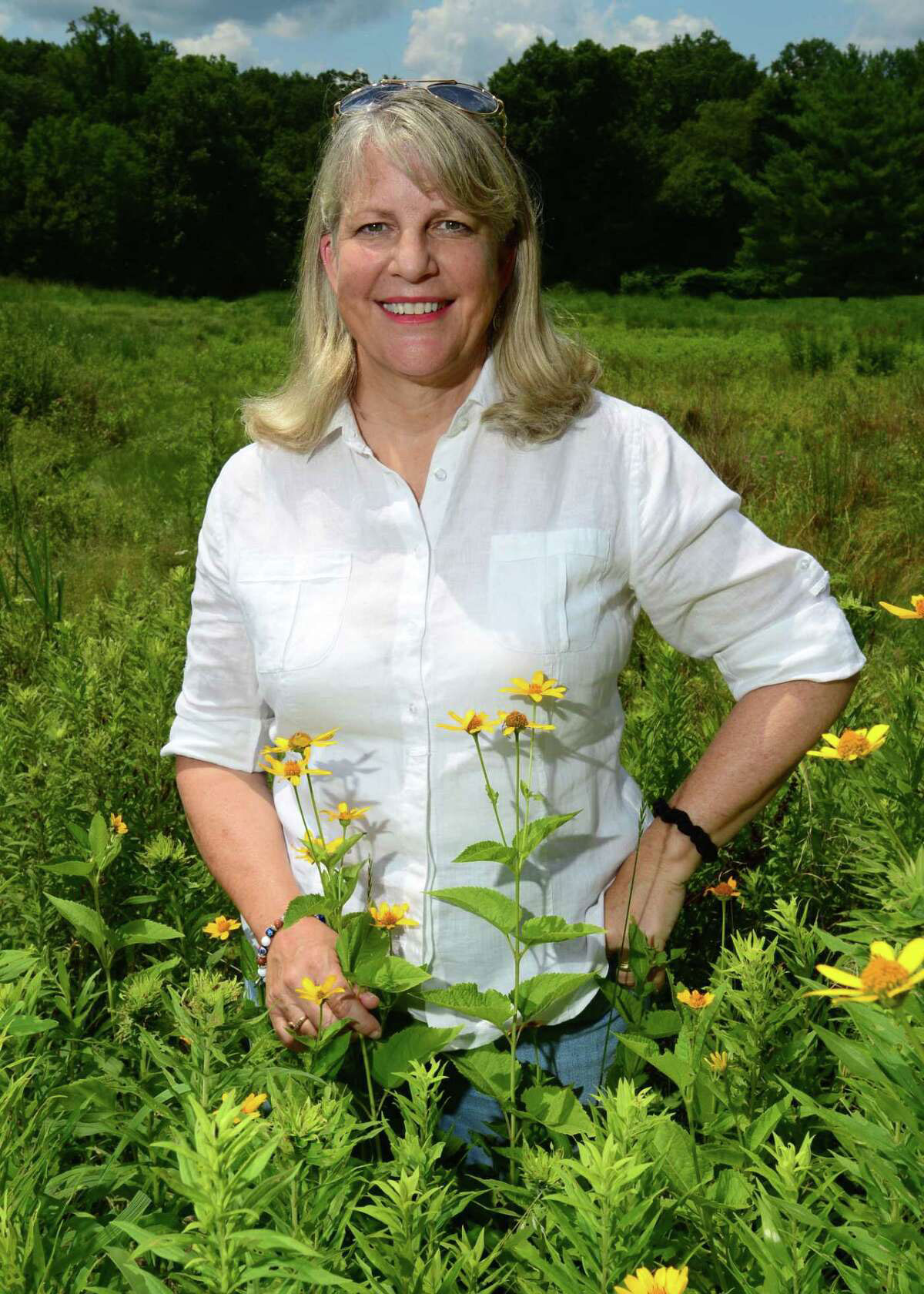2022 Environmental Champions - Connecticut
Congratulations to our 2022 Award Winners
On June 4, 2022, Aquarion Water Company celebrated the five winners of Connecticut's 2022 Aquarion Environmental Champion Awards during a ceremony at Connecticut’s Beardsley Zoo. Annually, the Environmental Champion Awards recognize organizations and individuals in the large and small business, non-profit, adult, and student categories.

Large Business Category
Pratt & Whitney – Waterbury, CT
Pratt & Whitney, a subsidiary of Raytheon Technologies, uses innovative technologies to engineer, manufacture, and service commercial and military aircraft engines, and auxiliary power units.
Pratt & Whitney recognizes sustainability as a foundational asset to its business and is a recognized leader in sustainable operations and products. Their Facilities & Services Scrap and Revert team has created a Global Center of Excellence. In the past year, the Center has helped minimize the company’s need for raw resources by returning 100,000 pounds of metal alloys back into the production system. In addition, they’ve also recycled more than four million pounds of scrap metal and metal recyclable material. By conserving natural resources and energy, Pratt & Whitney reduces its costs and has a positive impact on our environment.
Reaching beyond its own facilities, the Scrap and Revert team at Pratt & Whitney participates in global knowledge-sharing to spread best practices with domestic and international partners. This includes a global network of eight scrap processor sites and 46 Pratt & Whitney and part supplier sites. The initiative to recycle and reuse materials is just one example of how Pratt & Whitney has become a leader of sustainability in the aviation industry.

Non-Profit Category
Housatonic Valley Association – Cornwall Bridge, CT
The Housatonic Valley Association (HVA) is a non-profit environmental organization with projects encompassing over 2,000 square miles in Connecticut, Massachusetts, and New York, and aims to preserve the health of the Housatonic Watershed. The HVA collaborates with more than 200 communities, non-profit organizations, and businesses to protect local lands and waterways. Notably, the HVA partnered with the Trust for Public Land to form the Litchfield Hills Greenprint Collaborative, a collective of 28 towns in northwest Connecticut dedicated to preserving fields, woodlands, and waterways in the region.
Since its founding in 1941, the HVA has successfully protected over 19,000 acres of land and 120 miles of rivers and streams. The HVA’s legacy of success stems in large part from the education and mobilization of more than 20,000 volunteers who support a range of initiatives, from large-scale litter removal projects to shoreline restoration.
In 2020, the HVA completed its Healthy Housatonic Watershed Dashboard, a diagnostic tool used to identify land and waterway vulnerabilities. In 2021, the HVA preserved nearly 3,000 acres of forest in northwest Connecticut that were identified as vulnerable by the Dashboard. The organization is currently working to protect an additional 3,000 acres of land and restore 50 miles of stream that have been identified using the Dashboard. The HVA is also working to secure congressional designation as a “Partnership Wild & Scenic River” for a 41-mile section of the Housatonic River.

Small Business Category
Nod Hill Brewery – Ridgefield, CT
Established in 2017 in Ridgefield, Nod Hill Brewery is Connecticut’s first and only brewery powered completely by solar energy. The company’s 287-kilowatt rooftop solar array, completed in 2019, provides power for its entire facility and brewing process, and each year returns over 5,600 kilowatt-hours of electricity back to the power grid.
Nod Hill’s deep commitment to environmental responsibility is reflected in its zero-waste practices. Aiming to create as little waste as possible in its production process and business operations, the brewery offsets waste by donating grain used in brewing to local farms and follows safe wastewater protocols. In addition, Nod Hill limits the use of non-recyclable items at its seasonal beer garden.
Nod Hill supports a variety of sustainability initiatives including the Pollinator Pathway, a project which helps create routes for pollinators such as bees and hummingbirds across several Northeast and Mid-Atlantic states. By replacing invasive plants and weeds with a variety of native plant species in the meadow alongside its beer garden, Nod Hill has created a habitat for pollinators right on the brewery’s Ridgefield property. Additionally, Nod Hill’s newly-completed parking lot features electrical vehicle charging stations, solar-powered lighting, and a riparian barrier of native plants.

Adult Category
Mary Ellen Lemay – Trumbull, CT
Mary Ellen Lemay is a passionate advocate for sustainability in the Trumbull community. Mary Ellen serves as the Chair of the Town of Trumbull Conservation Commission and is a member of Sustainable Trumbull, an organization devoted to clean energy initiatives and town-wide recycling.
Known to friends and co-workers as “MEL,” Mary Ellen is a true environmental hero for her town. Recently, her efforts have been dedicated to securing municipal funding to support both 1,000 Trees for Trumbull, a tree replacement program, and the expansion of the community garden at Abraham Nichols Park to include vegetable patches for local food banks.
Mary Ellen was also a founding member of Connecticut’s Pollinator Pathway project in 2017. The volunteer-based project aims to establish pollinator-friendly habitats across Connecticut to support the important role that birds, butterflies, bees, and other animals play in our environment.
Dedicated to educating others about environmental preservation, Mary Ellen regularly offers guidance to community organizations and citizens about sustainable lawn care practices, the importance of native plants, and at-home pollinator habitat creation. Mary Ellen’s commitment to preserve her community’s environment and natural resources have inspired many of her fellow Trumbull residents to join her efforts.

Student Category
Izzy Kaufman – New Canaan, CT
Izzy Kaufman’s passion for environmental sustainability has brought tangible benefits to her community.
A senior at New Canaan High School, Izzy independently created a food scrap diversion plan for Greenology Kitchen, an organic, plant-based restaurant in New Canaan where she works. Izzy collects food scraps from Greenology for Oak Forest Farm to feed its chickens and turn into compost for use on its crops. Using this system, Greenology is able to divert nearly 3,500 pounds of food waste each month.
Izzy’s initiative helps support local agriculture while curbing the impacts of food waste. She has also helped facilitate Greenology’s transition from single-use plastics to reusable and compostable food packaging. By partnering with Planet New Canaan, a local environmental organization, Izzy is helping other restaurants in town implement food scrap programs.
Izzy hopes to extend her passion for environmentalism to her college education and to pursue a career developing public policies that support sustainable business practices.

